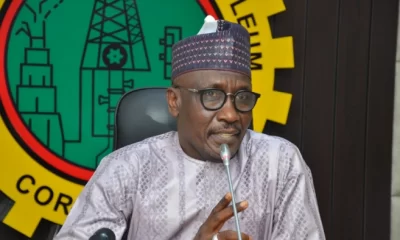Religion
Hajj Commission warns intending pilgrims to be wary of scammers

The National Hajj Commission of Nigeria (NAHCON) here brings to the notice of hopeful pilgrims and the general public fraudulent activities linked to the sponsorship of Hajj 2021 and some dubious persons advertising Hajj slots under the guise of being assured of Hajj allocation.
The Commission therefore warns the general public to be wary of falling victims of such dubious deals. In particular, it has come to our notice that a so-called Non Governmental Organization is collecting intending pilgrims’ money: N50,000 for form and another N100,000.00 for free $100,000 BTA (Basic Travelling Allowance), with the promise of sponsoring eligible candidates to Hajj for free.

In a statement by the Head of Public Affairs of the Commission, Fatima Sanda Usara said, no such organization is registered with the Commission and no unregistered company is authorized to organize Hajj or collect monies for Hajj for anyone or any group of persons. NAHCON distances itself from such unlicensed organizations and is warning the public to be cautious and report any such person or group collecting money for Hajj illegally.
Those allowed to collect Hajj fare deposits are State Pilgrims’ Welfare Boards/Commissions/Agencies, Licensed Tour Operators and Ja’iz Bank under the Hajj Savings Scheme arrangement. Apart from these three, any order channel should be considered illegal. Please find a list of Licensed Tour Operators on NAHCON’s website: https://www.nigeriahajjcom.gov.ng.
Consequently, the Commission here advises State Pilgrims Welfare Boards to sensitize their states’ Muslim public; using dominant local languages; thorough any possible means: radio, television, during enlightenment programs etc. against falling preys to swindlers whether in Nigeria or if they travel to Saudi Arabia for Hajj. And that they must pay for Hajj only through NAHCON authorized channels.
NAHCON Zonal coordinators are also encouraged to make a list of Licensed Tour Operators under their zones and share with state welfare boards as well as display same in their head offices for public consumption.
























